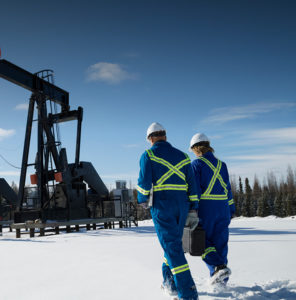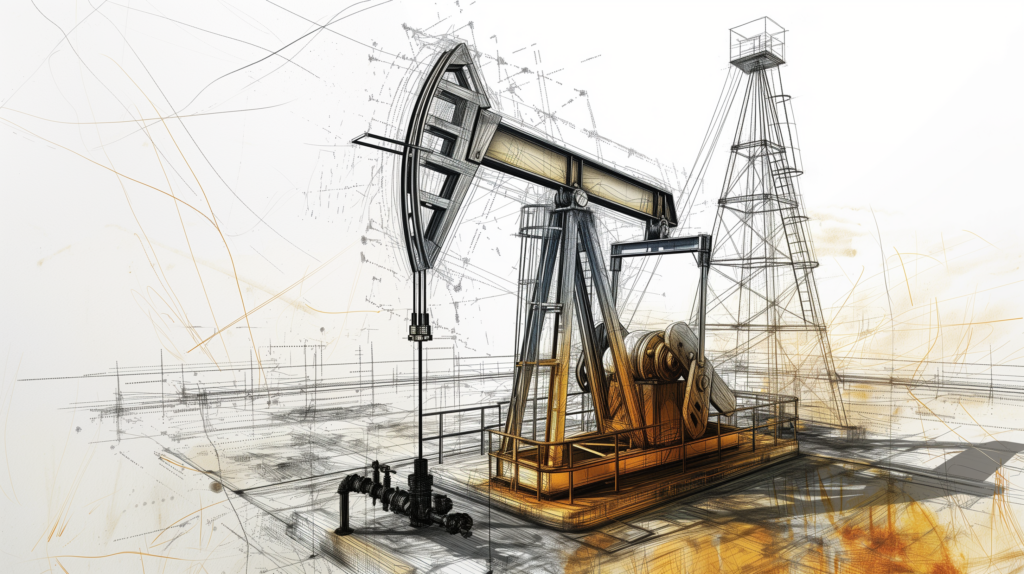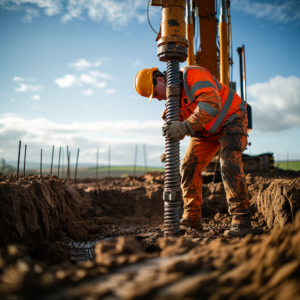 A Staff Drilling Engineer is a vital role in the oil and gas industry, responsible for planning, executing, and optimising drilling operations. These engineers are the technical experts who ensure wells are drilled safely, efficiently, and cost-effectively. Their expertise is crucial for accessing valuable hydrocarbon resources that power our world.
A Staff Drilling Engineer is a vital role in the oil and gas industry, responsible for planning, executing, and optimising drilling operations. These engineers are the technical experts who ensure wells are drilled safely, efficiently, and cost-effectively. Their expertise is crucial for accessing valuable hydrocarbon resources that power our world.
Educational Requirements and Qualifications
Necessary Degrees and Certifications
To become a Staff Drilling Engineer, you’ll typically need a bachelor’s degree in Petroleum Engineering, Mechanical Engineering, or a closely related field. However, to accelerate your career trajectory and unlock leadership roles, consider pursuing advanced degrees like a Master’s or Ph.D.
Relevant Courses and Training
To sharpen your skills and stay at the forefront of drilling technology, continuous learning is essential. Mobility Oil and Gas offers a comprehensive Managed Pressure Drilling (MPD) Training course. This course equips engineers with the latest techniques and best practices for managing well pressure during drilling operations, a crucial aspect of modern drilling.
Key Skills and Competencies
Technical Skills
Successful Staff Drilling Engineers possess a deep understanding of drilling technologies, methodologies, and equipment. They are proficient in using specialised drilling software and have a strong grasp of the geological and geophysical principles that govern subsurface formations.
Soft Skills
Beyond technical expertise, soft skills are indispensable. Problem-solving, critical thinking, and the ability to make sound decisions under pressure are paramount. Effective communication and collaboration are crucial for coordinating with multidisciplinary teams, while leadership and project management skills are essential for overseeing complex drilling projects.
Job Responsibilities and Daily Tasks
Planning and Designing Drilling Operations
Staff Drilling Engineers meticulously plan and design drilling operations, creating detailed drilling plans and schedules. They select the most appropriate drilling equipment and techniques based on well conditions and project goals.
Supervising Drilling Activities
On-site, they supervise drilling operations, ensuring adherence to stringent safety and environmental regulations. They monitor drilling progress, troubleshoot issues, and make critical decisions to maintain operational efficiency.
Monitoring and Reporting
Data analysis is a core part of their role. Staff Drilling Engineers analyse drilling data and performance metrics to identify optimisation opportunities and generate comprehensive reports and documentation.
Salary Expectations and Career Growth
Entry-Level vs. Experienced Salaries
Entry-level drilling engineers can expect a competitive salary, starting from around £40,000 per year, with the potential for substantial income growth as they gain experience and expertise. Advanced degrees and specialised certifications like the MPD training can significantly boost earning potential, up to nearly £70,000 per year.
Career Advancement Opportunities
With experience, drilling engineers can advance to senior roles such as Senior Drilling Engineer, Drilling Manager, or even Drilling Superintendent. Continuous professional development, including courses like MPD training, is key to unlocking these opportunities.

How the MPD Training Course Can Help
Course Content and Benefits
Mobility Oil and Gas’s Managed Pressure Drilling (MPD) course is designed to provide a comprehensive understanding of MPD principles, techniques, and applications. Here’s a breakdown of the key topics covered:
- Managed Pressure Drilling Overview:
- Definitions and distinctions between conventional drilling, underbalanced drilling, and MPD
- Benefits of MPD in challenging drilling environments
- Overview of MPD variations and their applications
- Similarities and Contrasts between Conventional Drilling and MPD:
- Commonalities in equipment, safety protocols, and well control principles
- Key differences in primary barriers, additional equipment, and specialised procedures
- Pressure Relationships for MPD Techniques:
- Understanding dynamic (ECD) vs. static pressures in MPD
- Choke control, surface pressure, and bottomhole pressure management
- Maintaining the critical pressure window for safe and efficient drilling
- MPD Equipment and Rig-Up:
- Detailed exploration of essential MPD equipment:
- Rotating Control Device (RCD)
- Rig interfaces and integration
- Separation equipment, choke manifold, and returns flow meter
- Automation, computer control, and data acquisition systems
- Drill string floats and continuous circulation equipment
- Pressure sensors, gauges, and auxiliary pumps
- Gas injection equipment (if applicable)
- Bottomhole Pressure Control:
- Mastering the MPD operational matrix
- Identifying and managing influxes and losses
- Strategies for maintaining a constant bottomhole pressure (anchor point)
- MPD Procedures:
- Step-by-step guidance for critical MPD operations:
- Tripping in and out of the hole
- Making connections
- Drilling operations
- RCD element replacement
- Casing/liner running and cementing
- Commissioning and fingerprinting the well
- Contingency procedures for handling unexpected events
- Health, Safety, and Environment (HSE) and Regulation:
- Addressing trapped pressure hazards
- Mitigating corrosion and erosion risks
- Conducting pressure testing and verification
- Navigating regulatory requirements for MPD operations
- HAZID/HAZOP/MOC:
- Understanding Hazard Identification (HAZID), Hazard and Operability Study (HAZOP), and Management of Change (MOC) processes
- Utilising bridging documents for effective communication and planning
- Integrating QHSE (Quality, Health, Safety, and Environment) principles into MPD operations
Real-World Applications and Case Studies
Throughout the course, participants engage in real-world case studies and problem-solving exercises. These scenarios simulate the challenges and complexities of MPD operations, enabling engineers to apply their knowledge in practical settings. Case studies may involve:
- Drilling in depleted reservoirs with narrow pressure margins
- Managing unexpected influxes or losses during drilling
- Optimising MPD parameters for specific well conditions
- Troubleshooting equipment malfunctions or operational issues
By participating in these hands-on exercises, engineers gain valuable experience and confidence in their MPD skills, preparing them for the demands of the field.
Enhancing Career Prospects
Completing the MPD course demonstrates a commitment to professional growth and equips engineers with in-demand skills. This can open doors to new opportunities and accelerate career advancement.

Frequently Asked Questions (FAQs)
What educational background is required to become a Staff Drilling Engineer?
A bachelor’s degree in Petroleum Engineering, Mechanical Engineering, or a related field is typically required. Advanced degrees like a Master’s or Ph.D. can be advantageous for career progression.
How does the MPD course from Mobility Oil and Gas benefit drilling engineers?
The MPD course enhances engineers’ technical knowledge, equips them with specialised MPD skills, and boosts their career prospects in the competitive oil and gas industry.
What are the key responsibilities of a Staff Drilling Engineer?
Key responsibilities include planning and designing drilling operations, supervising on-site activities, ensuring safety and regulatory compliance, monitoring drilling performance, analysing data, and preparing reports.
What is the average salary for a Staff Drilling Engineer?
Salaries vary based on experience, location, and qualifications. Entry-level engineers can expect a competitive starting salary from about £40,000 per year, with significant earning potential up to £70,000 per year as they gain experience and expertise.
What are the career advancement opportunities for drilling engineers?
Drilling engineers can progress to senior roles like Senior Drilling Engineer, Drilling Manager, or Drilling Superintendent. Continuous professional development, including specialised training like the MPD course, is crucial for advancement.
What soft skills are important for a Staff Drilling Engineer?
Critical soft skills include problem-solving, decision-making, communication, teamwork, leadership, and project management. These non-technical skills are essential for success in the collaborative and dynamic environment of drilling operations.
Learn more about Mobility Oil and Gas’s Managed Pressure Drilling (MPD) Training course and unlock your full potential as a Staff Drilling Engineer!
